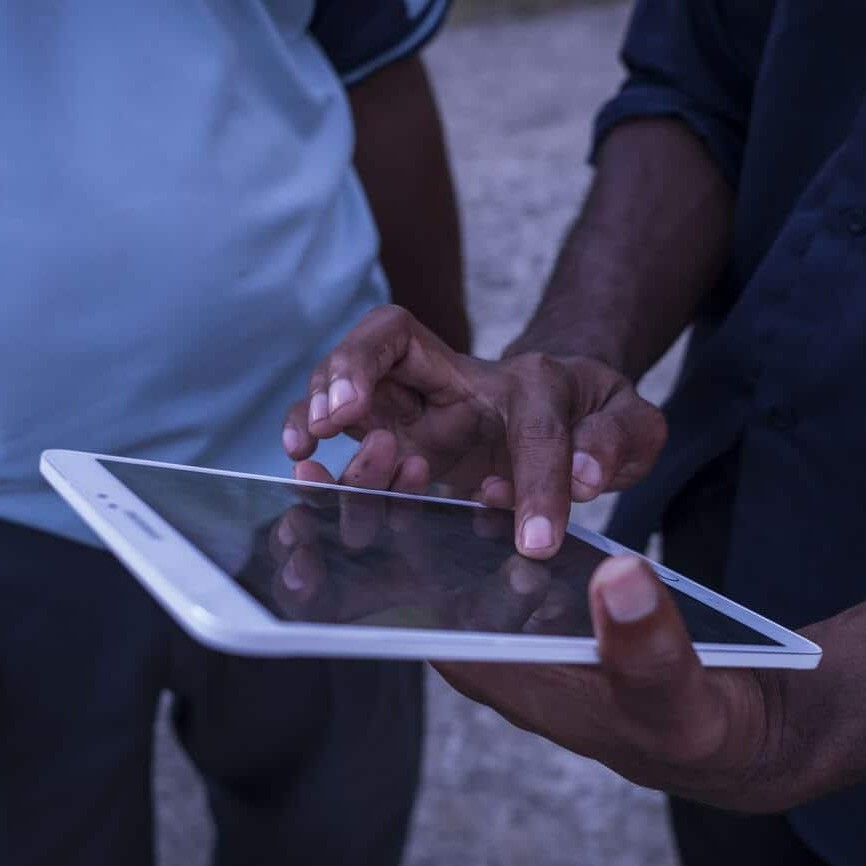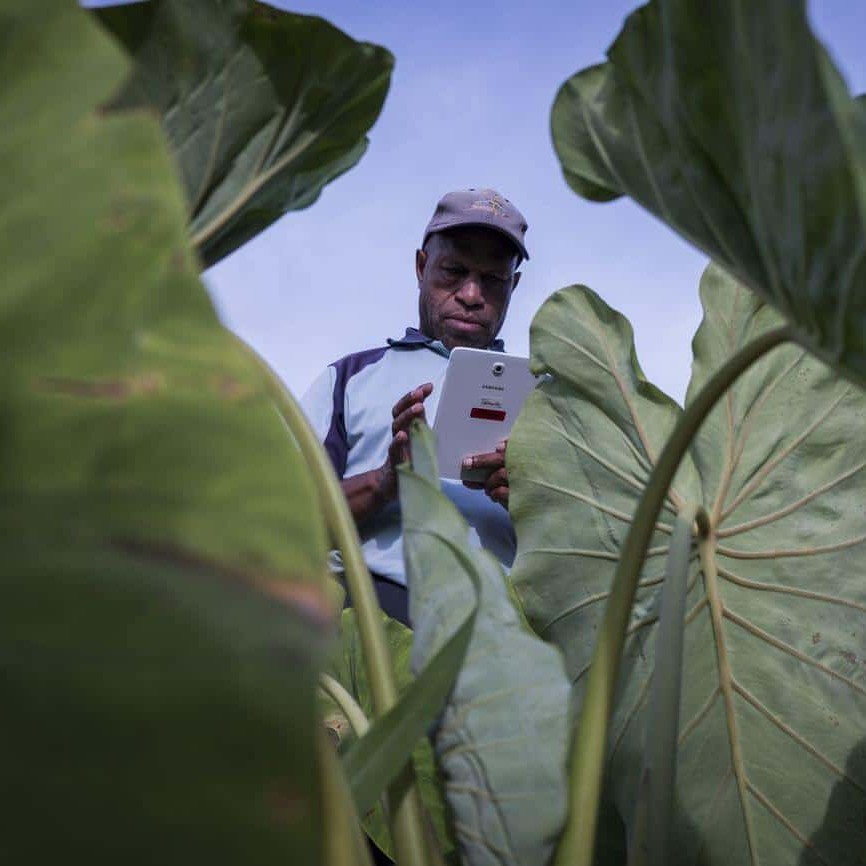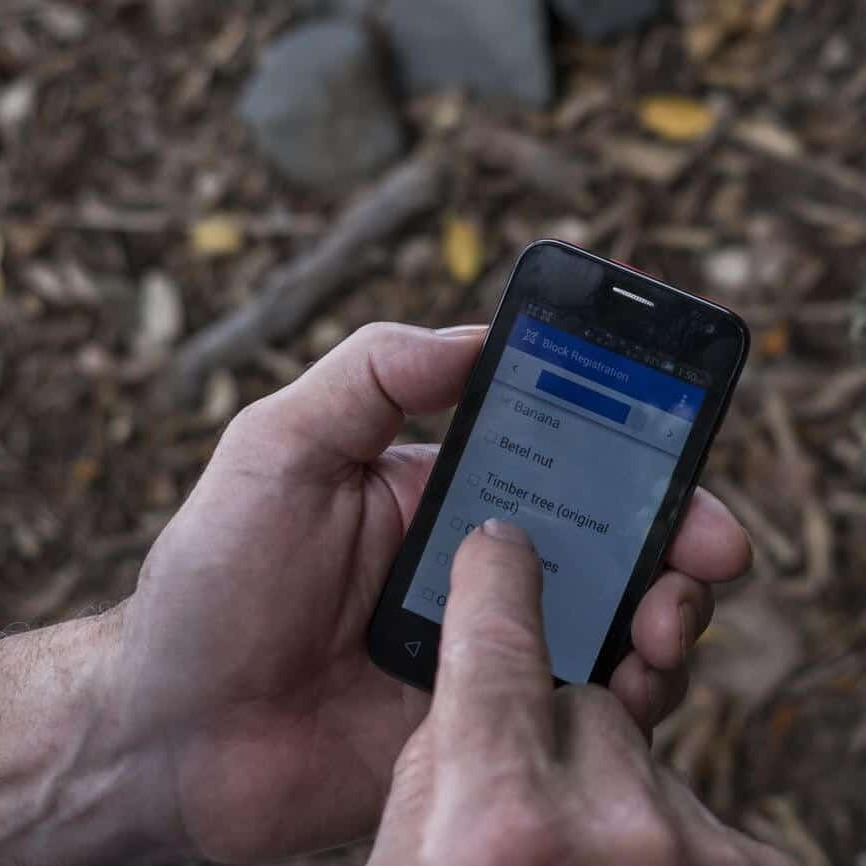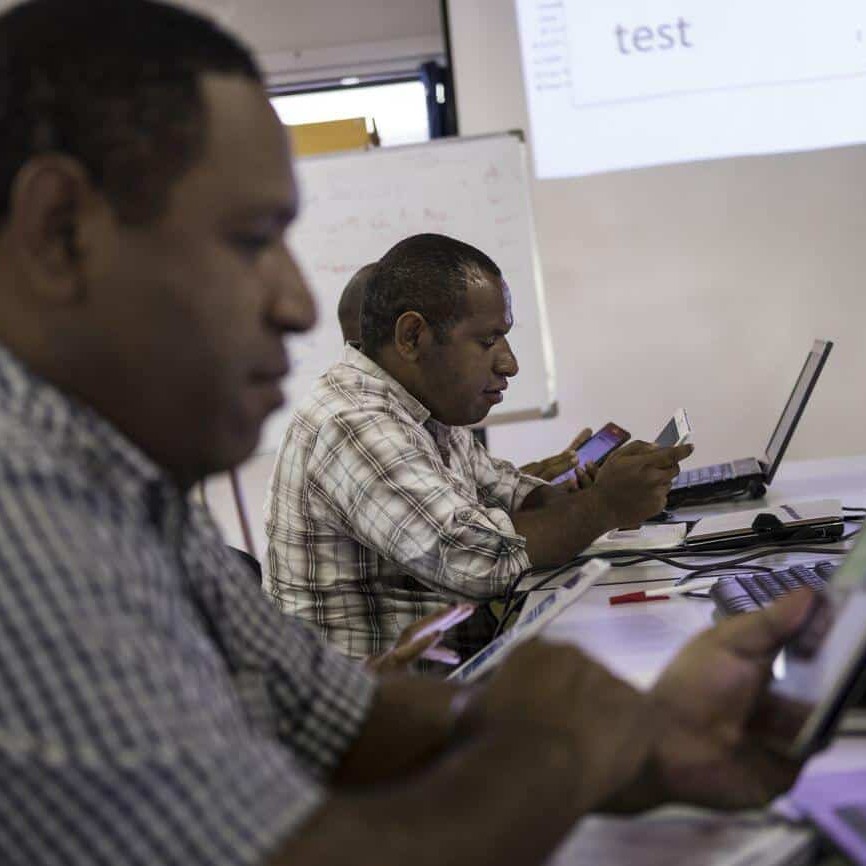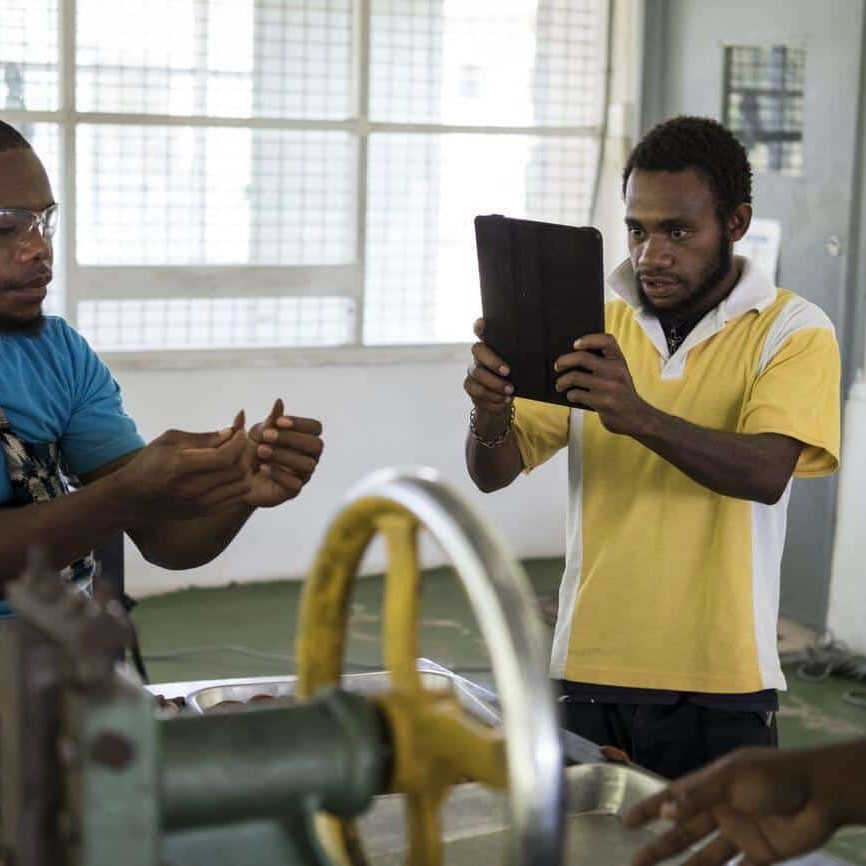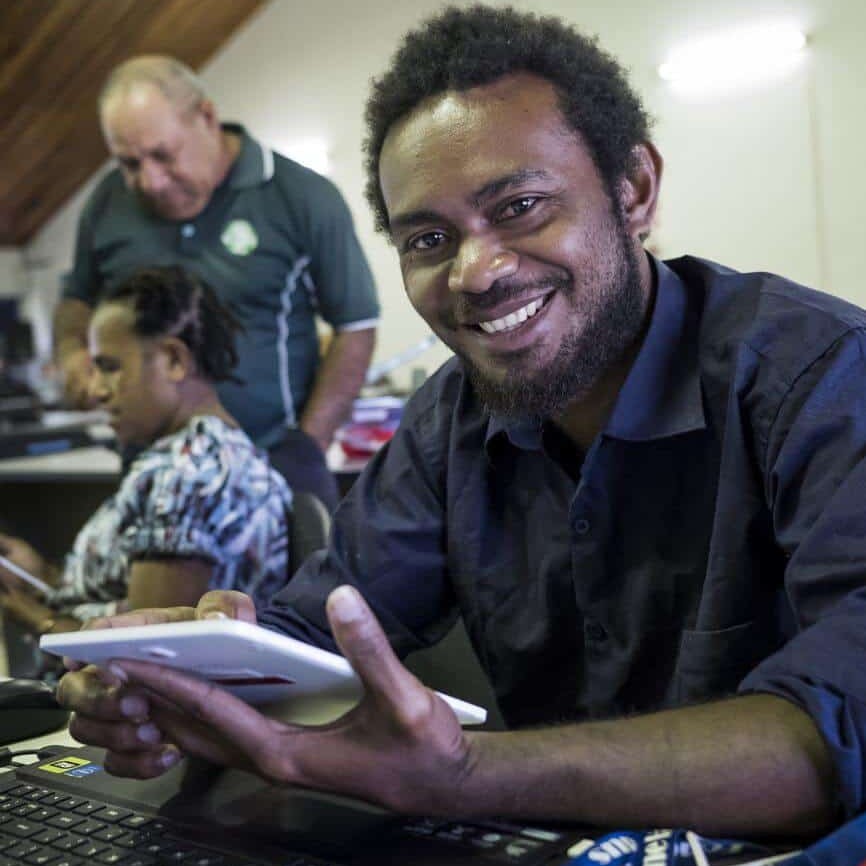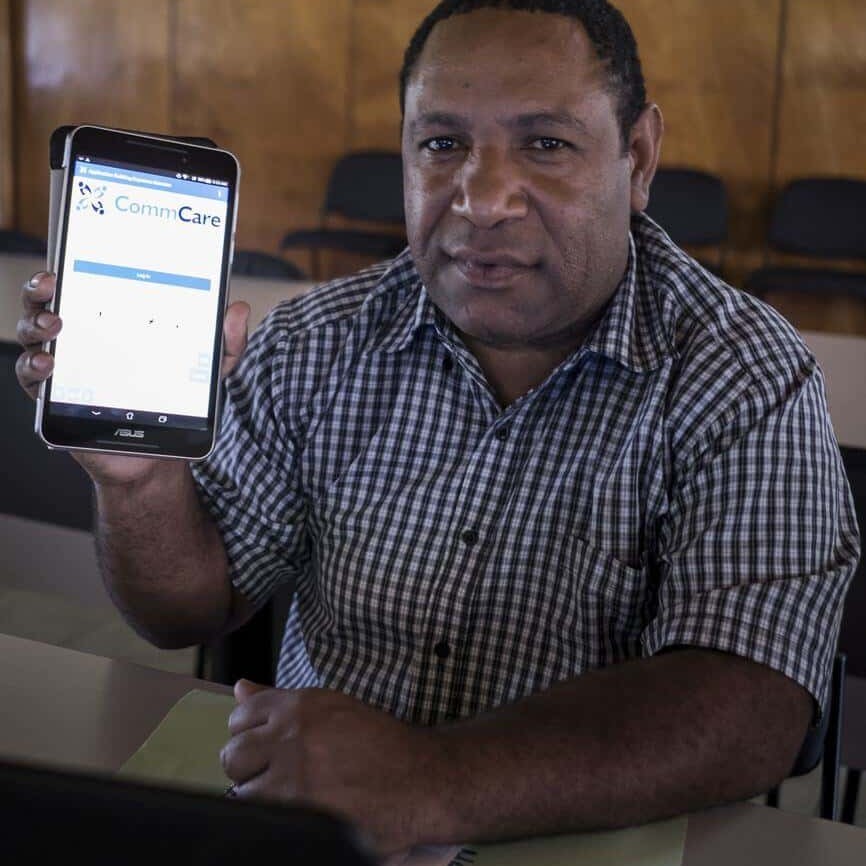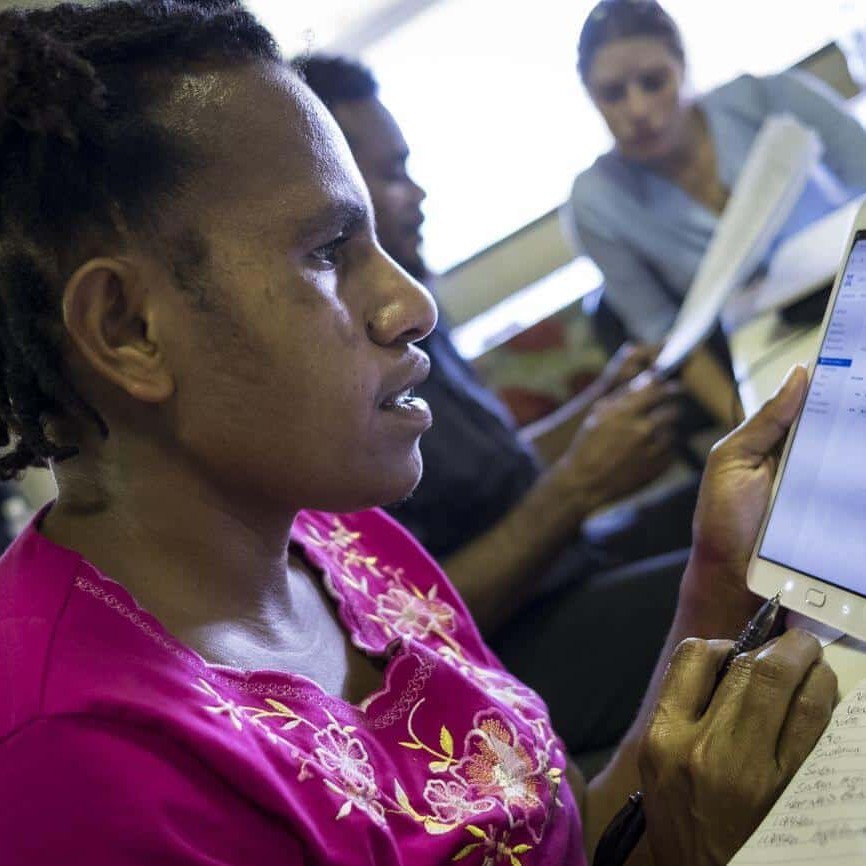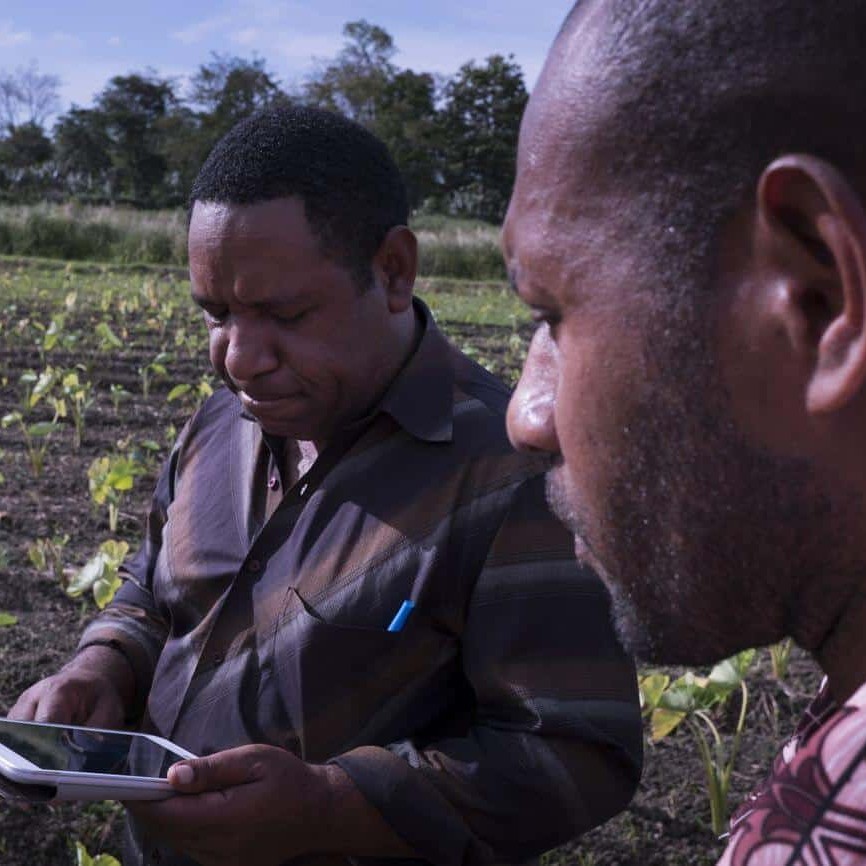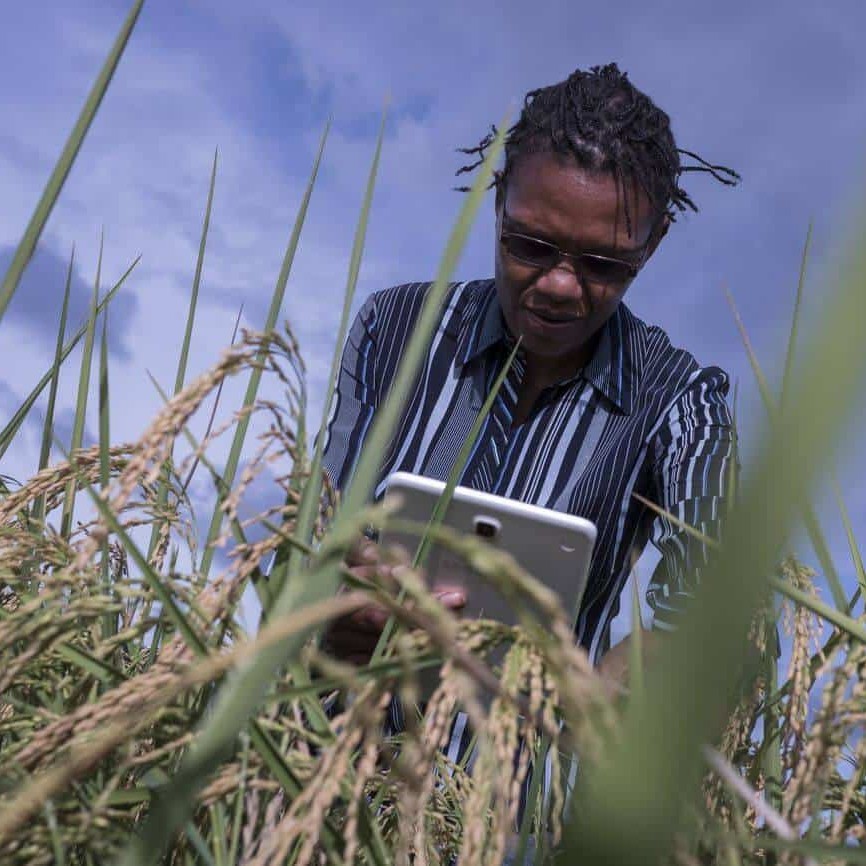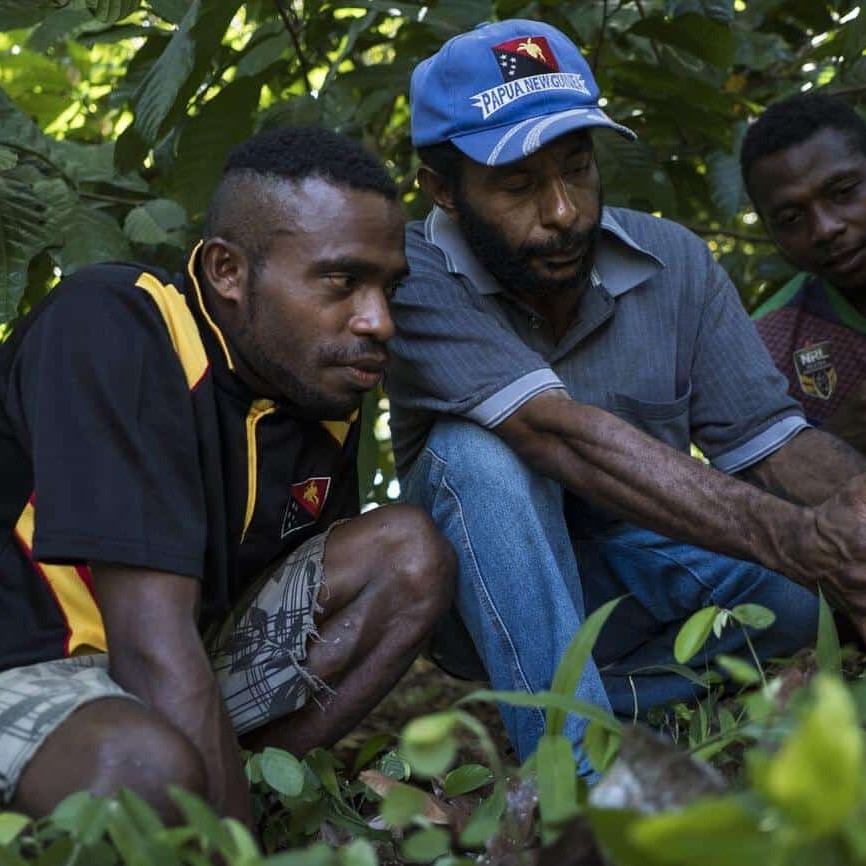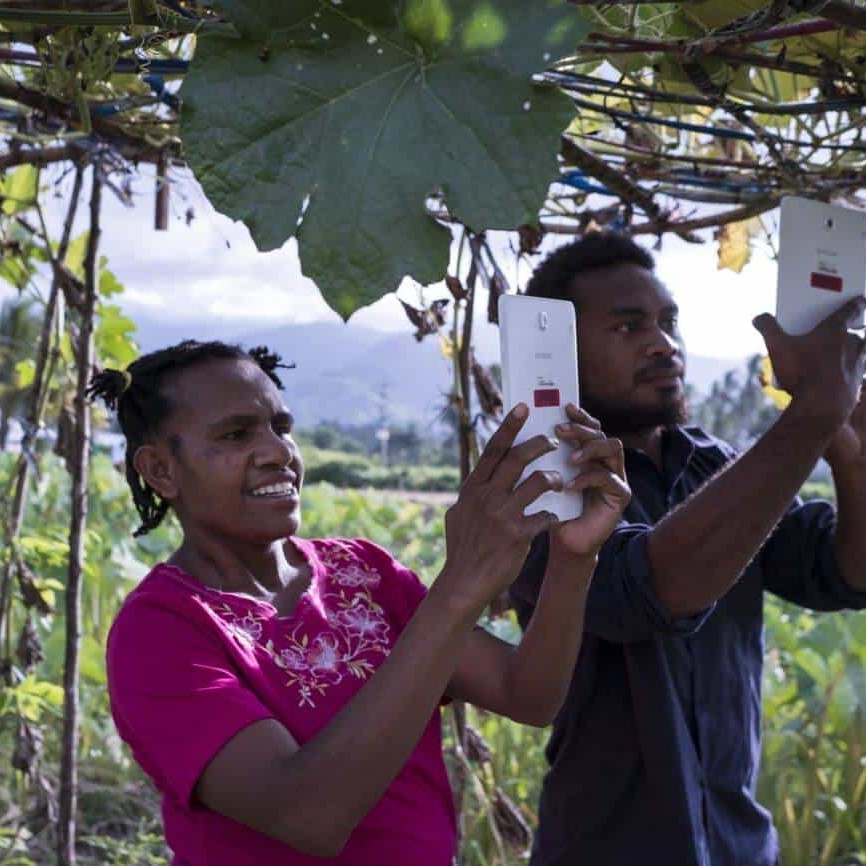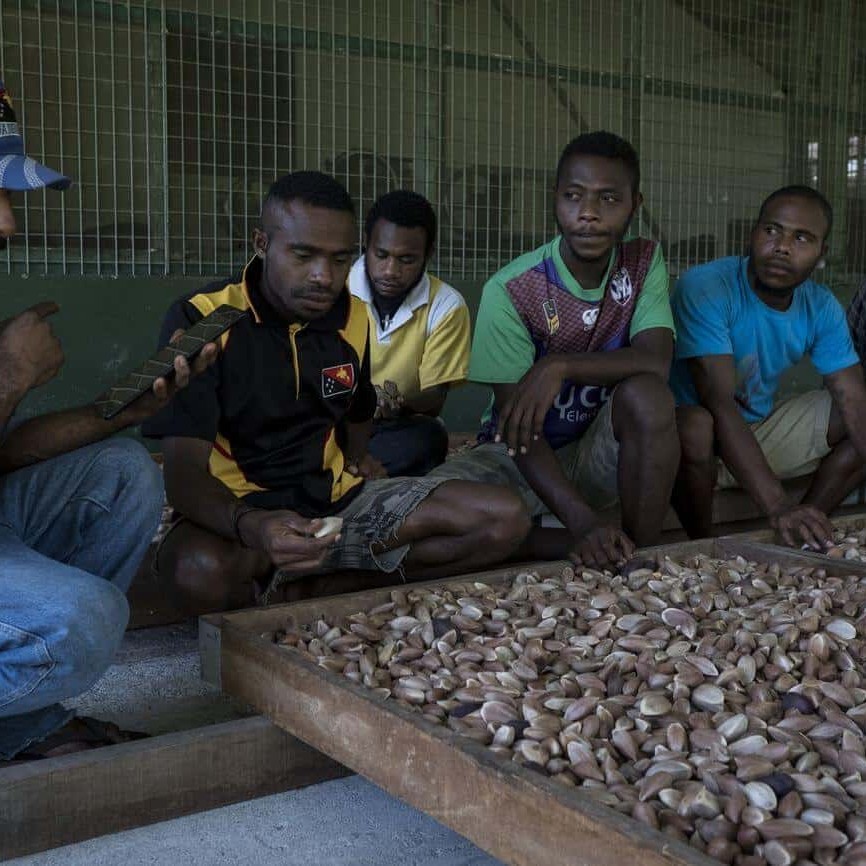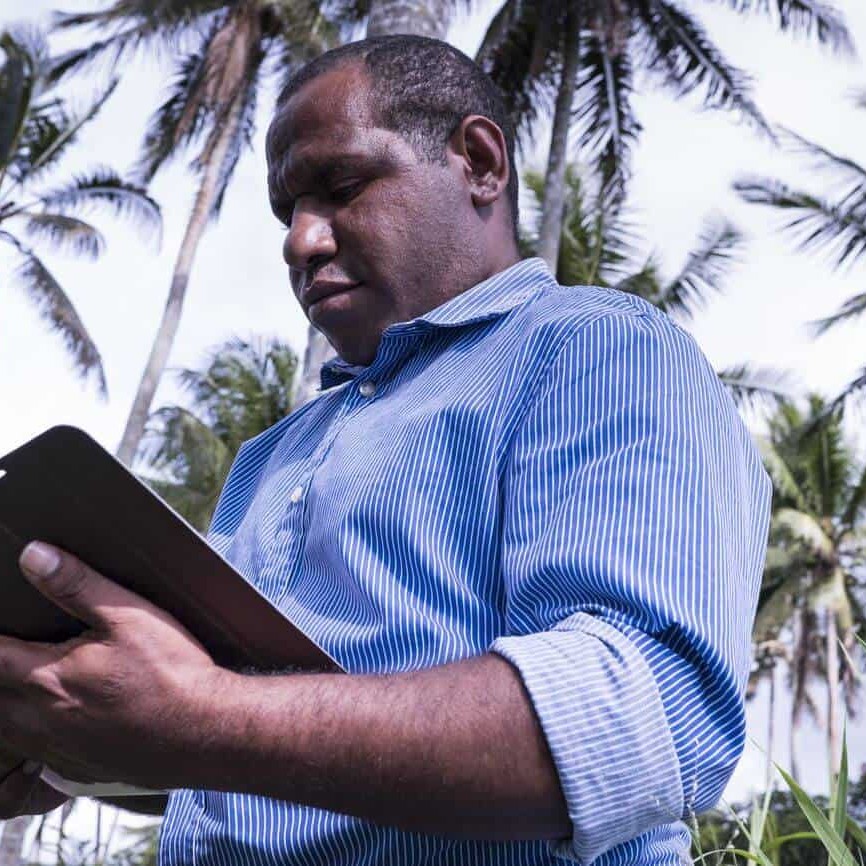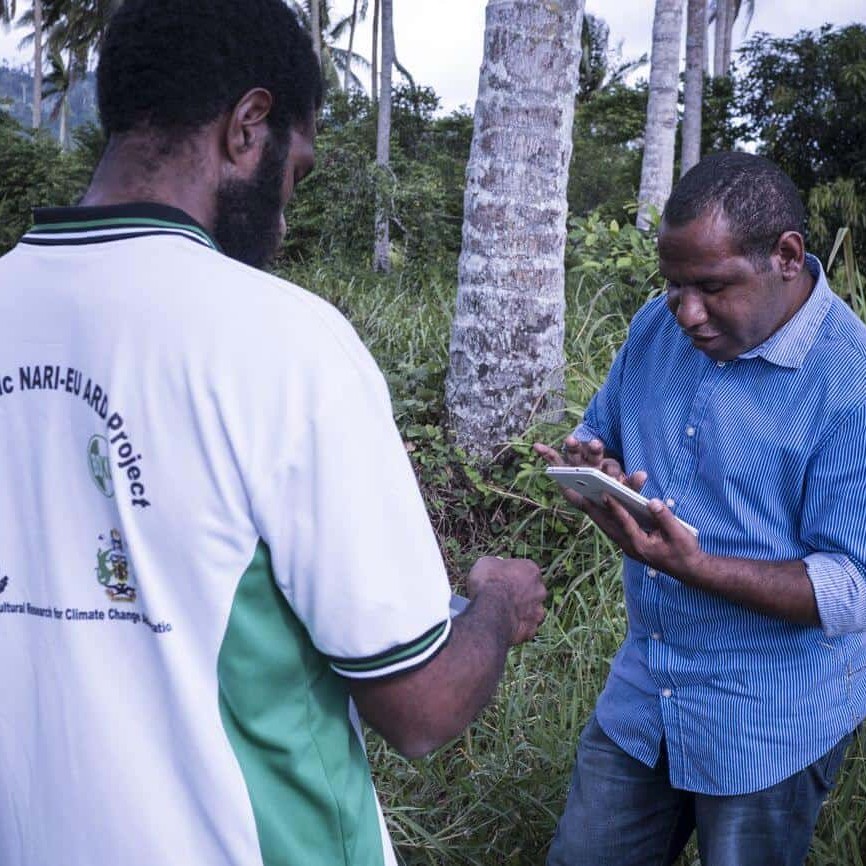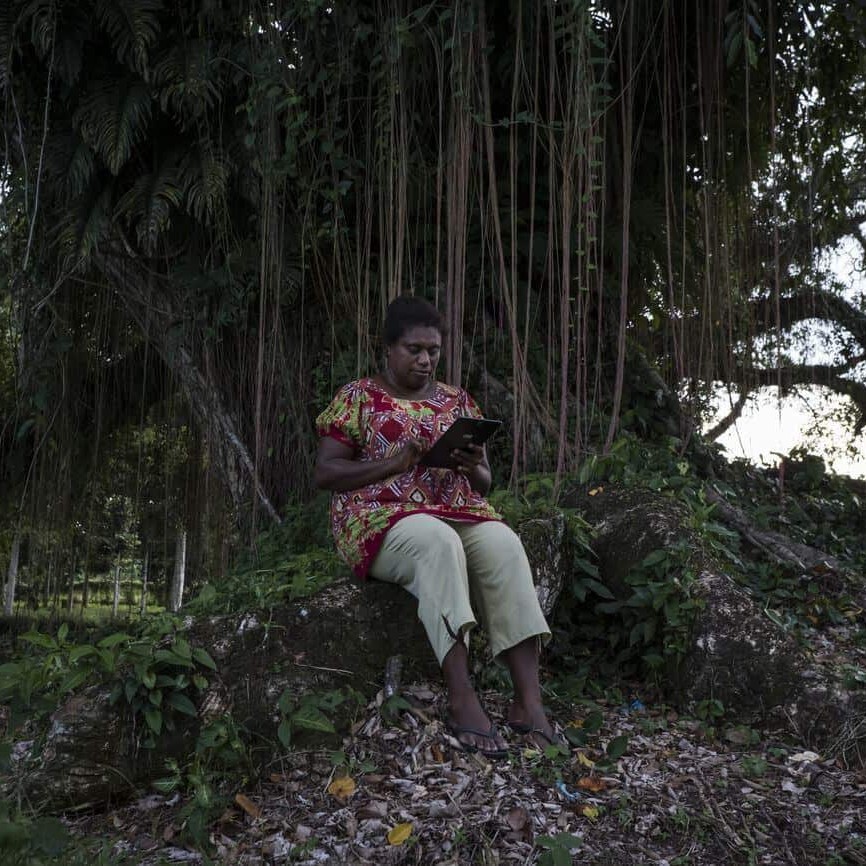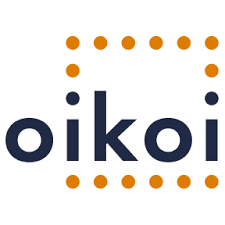As mobile technology has become increasingly available and accessible, there has been a growing interest from ACIAR Projects to explore opportunities such as Apps for digital data collection. A small research activity (SRA) was commissioned for TADEP to explore whether the adoption of a common digital data collection app (CommCare) by individual projects within an ACIAR program (TADEP) would add value to both the projects and the program.
ACIAR commissioned a Small Research Activity (SRA) GMCP/2015/016 ‘Assessment of digital data collection applications (DDCAs) to support ACIAR͛s monitoring and evaluation – Mobile Acquired Data (MAD) 1’ to shortlist Apps for piloting and ultimately make recommendations on which App/s have the greatest usability, scalability, affordability, security and user support appropriate for use in Projects. The extensive piloting process identified CommCare as the preferred App, which was rolled out to four ACIAR Projects in Vietnam, Pakistan, Myanmar and Vanuatu as part of a follow on SRA, GMCP/2016/004 ‘At-Scale Evaluation of Digital Data Collection Apps (DDCAs) in ACIAR projects – Mobile Acquired Data (MAD) 2’.
CommCare is a free open source mobile platform that enables anyone to build mobile apps. By replacing paper-based forms, frontline workers can use CommCare to track and support their clients with registration forms, checklists, SMS reminders, and multimedia. CommCare is the only platform for frontline workers that is open source, supports longitudinal client tracking, is specialised for low-literate users, runs on Java and Android phones, runs offline, integrates SMS for performance improvement, and has an application builder designed for non-programmers.

Simultaneously, the TADEP Bougainville Cocoa project had begun to integrate the use of Apps into baseline research being undertaken to understand how malnutrition and ill health compound labour shortages in the Bougainville cocoa industry. Two other TADEP Projects, Galip Nut and Family Farm Teams, indicated strong interest in learning from the Bougainville Cocoa teams roll out of CommCare. As ideas to integrate CommCare into TADEP Projects and potential areas for collaboration between TADEP Projects ensued, it became evident that there were also further opportunities for TADEP to utilise the key learnings from the current rollout of CommCare into the four MAD pilot projects to value add to the TADEP projects.
The MAD4TADEP SRA represented a natural progression in learning from the MAD series –commencing with a desktop review of commercially available app technologies; field testing two apps in a simulated ACIAR project; evaluating the adoption of apps within individual ACIAR projects; and finally understanding the benefits of adopting a common app across diverse projects within an ACIAR Program (TADEP).
As the commissioned organisation for the MAD small research activities, AgImpact, undertook an assessment of the capacity and needs of each of the five TADEP projects to adopt CommCare and proposed customised plans for one-on-one support to implement the digital data collection tool into their respective project activities. Evaluation was embedded into the SRA design, focused on addressing the research questions and documented what the program/institutional advantages are for TADEP of its individual projects all adopting CommCare, how will it help people communicate, share, etc.
During the scoping interviews to determine the level of support required for each TADEP project to adopt CommCare, the project leaders emphasised the importance of building the capacity of partner organisations in MAD technology within the TADEP network. As three of the five TADEP projects (Family Farm Teams, Galip Nut and Sweetpotato) have the National Agricultural Research Institute (NARI) as a key partner, it was agreed that there should be a coordinated effort to foster CommCare capacity building within NARI. The aim was to benefit NARI projects broadly (one example given was nursery monitoring) and to create a skilled resource pool of both app builders and enumerators that could be utilised in future ACIAR projects. The TADEP projects that do not have NARI as a partner organisation (Bougainville Cocoa and PNG Cocoa) also agreed that a resource pool of this nature would be valuable.
After a competitive selection process, five NARI staff were selected to undertake four days of intensive face-to-face training with AgImpact CommCare Support team as part of CommCare Certification Program. Each of the NARI staff identified an idea for an app relevant to a NARI research project and transformed this idea into an app ready to be deployed in the field.
Aside from the intensive face-to-face CommCare training, the five NARI staff continued to be supported in their learning by the Oikoi CommCare Support team over the following six months to achieve CommCare Application Building Certification. Four of the five NARI staff completed the certification process and showcased their learning at the 2017 TADEP.
Annual Meeting:
- Jeromy Kavi
- Elly Solomon
- Raywin Ovah
- Isidora Ramita
Oikoi delivers business intelligence for agriculture – they help get the right information to the right people at the right time. Oikoi makes technology work for people and has used CommCare to improve a wide variety of research projects and development programs, across all sectors, in over 12 countries in the Asia-Pacific.


